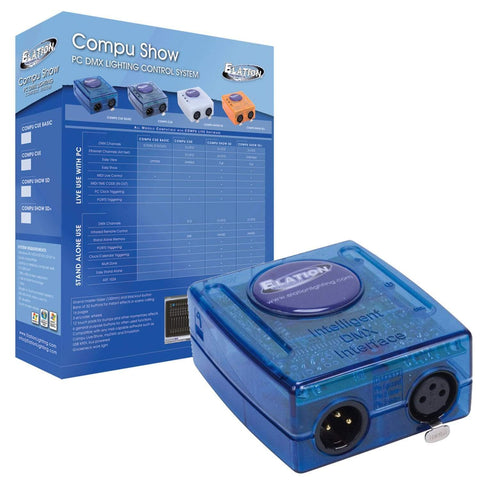So you’ve decided to take that next step and go with control software for your lighting! Congrats! This is a big step! As with any large step forward, it comes with several things to consider: the role of your lighting, the types of gigs you play regularly, operating system and control surface, and users/training.
Role of Lighting
This really boils down to a couple of questions.
- What type of gigs do you do, and where would you like to expand into?
- What types of spaces do you tend to play in (churches, clubs, concerts, etc)?
Types of events can be any number of things, from wedding receptions and birthday parties to lighting in a house of worship. If you find yourself typically performing in settings like church services and receptions, you’re most likely using lighting as a sweetener, meaning that the lighting is meant to enhance whatever else is going on but it doesn’t steal the show. For some other types of gigs, you may find that lighting is more foundational to your overall effect, meaning that it is meant to grab some of the focus from the audience. This will almost always be a sliding scale, but it’s important to ask yourself in the planning stages what role it’s playing now and what role you’d like it to play three or even four steps down the road. The important consideration here is that of what you do with lighting, and how that could change. If versatility is important, it may be beneficial to invest in software that supports multiple lighting universes and set ups. If it is less so, and your gig types and hardware won’t change too much before your next step forward, then having only one universe of support may be enough. Regardless of your answers to this, Elation LightJockey DMX Software with USB Interface Pair System is a good all-in-one multiple universe solution.
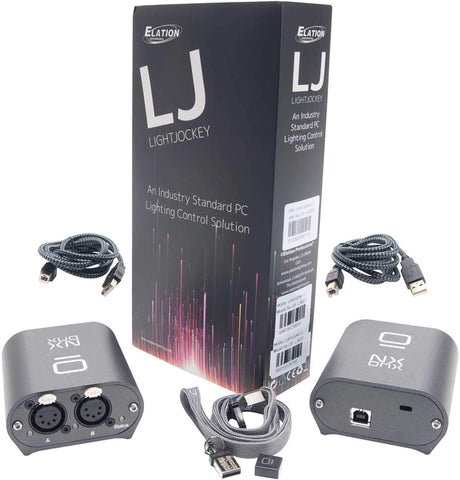
Spaces/Venues
Spaces and venues goes along with the previous question. In most cases, a type of space will be reflective of the type of event that you’re doing, but sometimes that isn’t the case. A DJ gig could happen in a restaurant, and a concert could happen in an industrial space, houses of worship may need to be agile enough to move occasionally, and there are dozens of other variations. This is where profiles could be important. If you have certain things you like in certain spaces, you could set profiles for each type of gig. That way, when you place your fixtures in whatever space you are in, the profile will give you the mood you’re looking for. The profiles can each have a personality that fits the gig, and you can simply tweak them as needed to fit any given space while still keeping your own performance personality intact. Whether performing in a nightclub, a house of worship, or a performing arts center your brand can shine through. ADJ's myDMX 3.0 DMX Interface & Software is a great option to both find and control profiles.
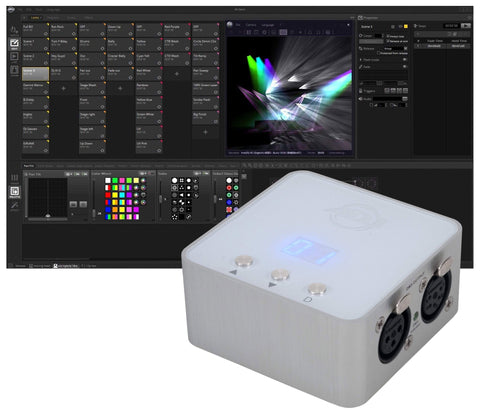
Operating System/Control Surface
What are you working with now? How comfortable is it for you? These are questions to have a bead on the answers to before moving forward with your software DMX system. Any product’s specs will tell you what OS they are compatible with, and should give you a sense of how well your library will be able to interface with the control surface.
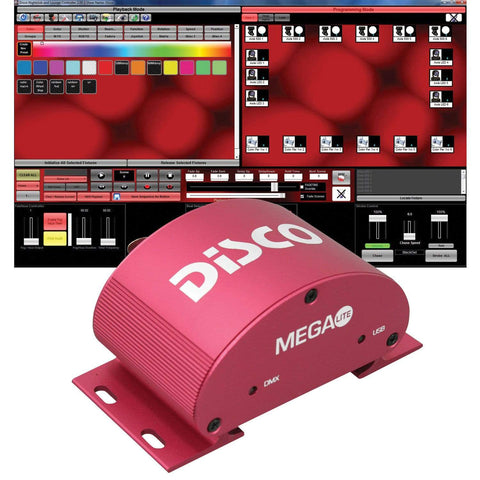
In many cases, this will only be a dongle that serves to unlock the control on your computer or lighting board. But note that some of them won’t play well with Windows, and some not with Mac systems. Your level of comfort should be considered here as it not only dictates how successful you will be in this step, but also how much you can grow before another significant update to your whole rig. Mega Lite Disco 100 USB to DMX Interface & Lighting Control Software is a system that works well with Windows right out of the box. Chauvet Xpress 512S DMX USB Interface & Software connects to both Mac and Windows.
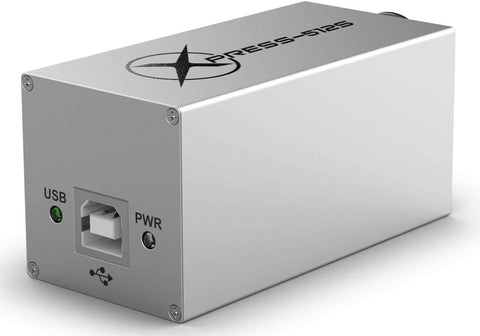
Users/Training
How easy are these systems to use? Is it something that you will need other people to be able to use, and if so, how quickly could they conceivably learn it?
Many mobile performers (be they DJ’s or journeyman lighting designers or house of worship lighting designers or any one of a number of other things) operate alone, but that might not be the case for you. Perhaps you need to be able to fold in a few people under your professional umbrella fairly quickly, if that’s the case you may want something you can learn quickly and something you’ll be able to effectively teach to another user.
It’s also possible that teaching is not your bag or your main goal. This is where setting fixture groups can come into play: a fixture group will allow the same set of fixtures to react as a group to any DMX set up. Those groups can then take the place of a detailed knowledge of how to set up an entire DMX chain that includes all of them separately. This “set it and forget it” method can save lots of time and stress.
Then again, teaching could be a wise time investment and could lead to greater advantages in the long run. Imagine training lay people in a house of worship about some (or all) of the intricacies of creating a DMX set up, and maybe having multiple people to tap who can run any specific service or event can help scalability as things move forward. The same holds true for mobile DJ’s bringing in other people to their operations.
Your comfort level should dictate this, but this ADJ Compu Cue Basic DMX Lighting Software System may be easier to teach than others.
